Tabu
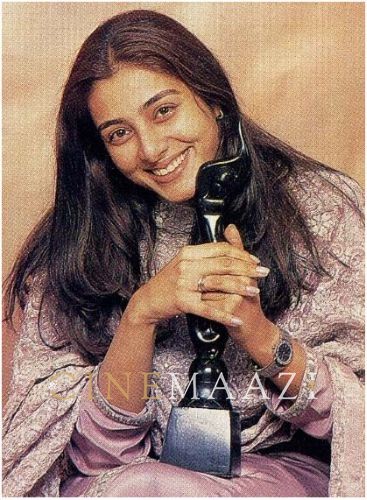
Subscribe to read full article
This section is for paid subscribers only. Our subscription is only $37/- for one full year.
You get unlimited access to all paid section and features on the website with this subscription.
Not ready for a full subscription?
You can access this article for $2 , and have it saved to your account for one year.
- Real Name: Tabassum Fatima Hashmi
- Born: 4 November 1971 (Hyderabad)
- Primary Cinema: Hindi
- Parents: Rizwana and Jamal Hashmi
“After hearing him (Gulzar) narrate (Maachis, 1996), I was like, ‘What am I going to do?’ I could not understand anything because the subject was so heavy and political. And I understand the political relevance now and what it meant to Gulzar sahab. At that time, I just looked at my character and I was like, ‘Oh my god I am playing such a relevant part in this story.’ That was like a drug. And if somebody like Gulzar sahab can entrust you with this kind of character, it’s like stepping into a new skin.” Thus has Tabassum Fatima Hashmi, better known mononymously as Tabu, described her transition from frothy mainstream films to becoming the face of ground-breaking independent cinema. The film was the tipping point, helping her realise her potential, driving her to seek out powerful roles, and setting her on a path that has kept her relevant for decades in Hindi cinema. Known for her distinctive choice of roles, portraying both strong-willed and independent as well as emotionally vulnerable women, she is synonymous with impactful characters such as Nimmi from Maqbool (2003), Mumtaz in Chandni Bar (2001), Ghazala Meer in Haider (2014), Aditi Pandit in Astitva (2000), IGP Meera Deshmukh in Drishyam (2015), Simi Sinha in Andhadhun (2018), Gita Patel in Life of Pi (2012), and Nina Verma in Cheeni Kum (2007), among others. From time to time, she has also broken from the mould of serious cinema, displaying her flair for comedy and mainstream fare. One of the most accomplished actresses in Hindi cinema, and known for the ability to carry a film on her shoulders, she has won several popular awards, including two National film best actress awards for Maachis and Chandni Bar. In 2011, she was bestowed the government of India’s fourth-highest civilian honour, the Padma Shri.
Born on 4 November 1971 to Rizwana, a school teacher, and Jamal Ali Hashmi in a Hyderabadi Muslim family, her father had left the family when she was three. Her maternal grandparents, both retired professors, ran a school. The family was also related to Shabana Azmi. Completing her schooling at St Ann's High School, Vijayanagar Colony, Hyderabad, she moved to Bombay and studied for two years at St Xavier’s College. Her sister Farah Naaz had debuted in films with the YashRaj banner’s Faasle (1985). The same year, Tabu had her first credited role as a teenager in Dev Anand’s Hum Naujawan (1985). She would debut in her first leading role in the Telugu film Coolie No. 1 (1991). In 1994, she received the Filmfare award for best female debut for the Hindi actioner Vijaypath, in which she starred opposite Ajay Devgan.
She saw commercial success in films such as in Ninne Pelladata (1996), Kadhal Desam (1996), Saajan Chale Sasural (1996) and Jeet (1996), followed by box office hits like Iruvar (1997), Border (1997), Biwi No.1 (1999), Hum Saath-Saath Hain (1999), Kandukondain Kandukondain (2000) and Hera Pheri (2000).
Playing a young woman affected by the Punjab insurgency in the political thriller Maachis (1996), a realistic, hard-hitting portrayal of terrorism and youth in the Punjab after the 1984 riots, this Gulzar directorial brought her acting prowess to the fore, and made her the actress of choice for offbeat roles of women of substance. These include films like Meghna Gulzar’s Hu Tu Tu (1999) in which she played a politician torn between family and ideals and Astitva (2000) in which she essayed a woman who moves beyond the confines of her traditional marriage.. Of her performance in the latter, the Hindustan Times film critic wrote, “Tabu is brilliant and once again proves her mettle as an actress. The mind-blowing range of emotions she displays, her exquisite face and her subtle quiet dignity with which she handles her character, will take her far in her film career.”
She successfully balanced this realistic cinema aspect of her career with mainstream films such as Virasat (1997), Biwi No.1 (1999), Thakshak (1999), and Hera Pheri (2000).
Chandni Bar in 2001 proved another landmark film in her career, as she played a displaced woman in this Madhur Bhandarkar directorial, who is forced to become a bar dancer and sire the children of a gangster. Her performance is considered one of her career’s best.
In the crime drama Maqbool (2004), which saw director Vishal Bhardwaj transport the intrigue of the Shakespearean tragedy Macbeth to the gritty underworld, she played Nimmi, mistress of an ageing Abbaji (Pankaj Kapur). She and Miyan Maqbool (Irrfan), Abbaji’s right hand man, are secretly in love. Nimmi encourages Maqbool's ambitions and persuades him to kill Abbaji to take over as don, leaving them eventually haunted by guilt. Pointing out that she shone in a dark role, a critic wrote, “The most versatile actress in Bollywood takes to villainy like second nature. She is menacing and seductive, but keeps an innocent look on her face… Her gradual insanity is heart-wrenching and her final outburst is easily the highlight of the film.”
Ten years later, she would collaborate with Bhardwaj again, in Haider (2014), another Shakespeare-inspired tragedy about a young man who returns to Kashmir to confront his uncle, who he believes is responsible for his father's disappearance. Her character Ghazala is torn between her idealistic husband, her opportunistic brother-in-law, and her innocent and passionate son. Speaking about her role, she said, “Somewhere, she (Ghazala) feels she has the responsibility to keep everything in control, but obviously she can't. Her love for her son is crazy. She is always trying to protect him from being misled and misguided. He (Bhardwaj) cast me as Shahid's mother because he wanted the oddity of the relationship to come out which wouldn't have come across with a regular aged mother-and-son combination. Haider shares a love-hate relationship with Ghazala, but it's a very passionate emotion. You almost feel odd that these two are mom and son. Haider's predicament is that he doesn't know what to do with his mother—whether to love her, hate her, believe her or kill her.”
With Namesake (2006), her first Hollywood film, she made an impact in this Mira Nair directorial that depicted the struggles of Ashoke (Irrfan) and Ashima Ganguli (Tabu). Hailing from the state of West Bengal, the couple migrates to the United States. The film follows their lives and that of Gogol and Sonia, their American-born children. The film takes place primarily in Kolkata, New York City, and suburbs of New York City, and won positive reviews from American critics. The film was a big hit overseas, and she received praise for her performance.
She would also be cast as the mother of the protagonist in Ang Lee’s Life of Pi (2012), an adventure drama fantasy about a young man who survives a disaster at sea and is hurtled into an epic journey of adventure and discovery, forming an unexpected connection with another survivor: a fearsome Bengal tiger.
The thriller Andhadhun (2018), in which one reviewer praised her saying she “runs away with the show,” unexpectedly enjoyed immense success in China, where it reportedly collected nearly $50 million. Tabu herself would describe this as “unintentional magic”. “I was exploring so much of myself, I was learning so much from [director] Sriram Raghavan, and I really wanted to explore that whole synergy and it was really a huge progress in my own growth,” she would say of the experience.
Over the years, she continues to surprise audiences with her choice of roles, adding to her admirable repertoire in unexpected ways. More recently, in the crime thriller Drishyam (2015), she played inspector general Meera Deshmukh, a tough cop and worried mother who has a family arrested on suspicion of her son Sam's death. She reprised her role in Drishyam 2 (2022), in which her character is no longer in the police force, but is pursuing an agenda against the film’s protagonist, played by Ajay Devgn.
She successfully explored the realm of psychological comedy horror in Bhool Bhulaiyaa 2 (2022), as well as action crime comedy in Kuttey (2023).
In 2020, she appeared in the BBC television drama miniseries A Suitable Boy directed by Mira Nair and adapted by Andrew Davies from Vikram Seth's 1993 novel of the same name. Set in the backdrop of post-independent India, she played the courtesan Saeeda Bai who is much older to Maan (Ishaan Khatter), the son of a minister, who is infatuated with her.
In 2023, she headlined Khufiya, an action crime biography, directed by Vishal Bhardwaj. She played Krishna Mehra, an operative at Indian spy agency known as R&AW. Her character is assigned with tracking down the mole selling India's defense secrets. She also has her own personal challenges, as a spy and a lover.
Tabu has won considerable praise both in the industry and the media. Gulzar hailed Tabu as “the beginning of a new era” and “a thinking actress in the mould of Nargis, Nutan and Meena Kumari,” while filmmaker Karan Johar terms her “truly the country's greatest actor,” drawing attention to her versatility, capacity for adaption, and timelessness. Dubbed “one of the finest actresses” by her Haider co-star Shahid Kapoor, Katrina Kaif has called her the “most beautiful”.
Praising her “uncontrived freshness” and “mobile face,” India Today has noted her “considerable range”, while Filmfare declared, “When you find her name on the credit list of a movie, expectations automatically shoot up.” Forbes pointed out that she portrayed strong women-oriented characters much before such roles started to be called game-changers, while Vogue commented on her having delivered “non-stop stellar and heart-swooning performances.”
Appearing on several lists of greatest performances and top actresses, Tabu remains selective about her film roles, revealing in the course of interviews, “I do films which move me and most of all, the unit and the director should appeal to me… I only know that I’ve remained consistent and maintained my quality of work… I don’t compare myself to anyone. Though I feel good about being engaged in something stimulating always, whether someone else is doing more or less doesn’t matter to me. It feels fantastic when you’re told that you’re significant but I never ever dwell on it.”
Speaking about being single in her personal life, she has said, “I don’t think this matter can be easily discussed. There are too many factors. It’s not only about me; it’s about the other person, the timing and other things… At the same time, I’m not lacking in life because I’m single. I was not told to be single… it just didn’t happen for me. If I’m still single that means I definitely want to be so.”
-
Filmography (27)
SortRole
-
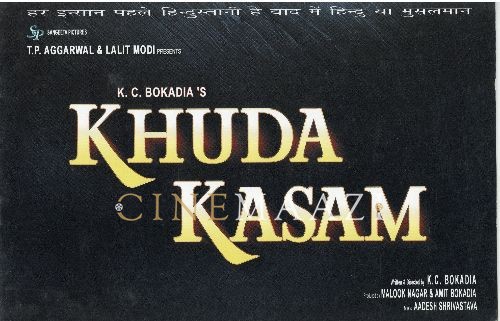
Khuda Kasam 2010
-
Namesake 2006
-
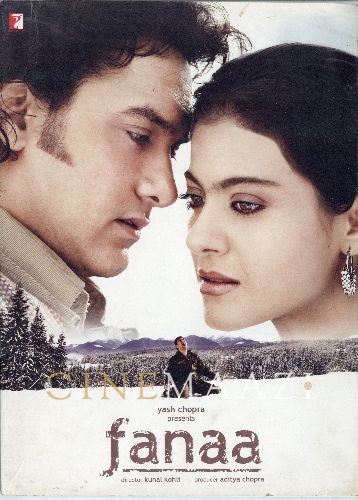
Fanaa 2006
-
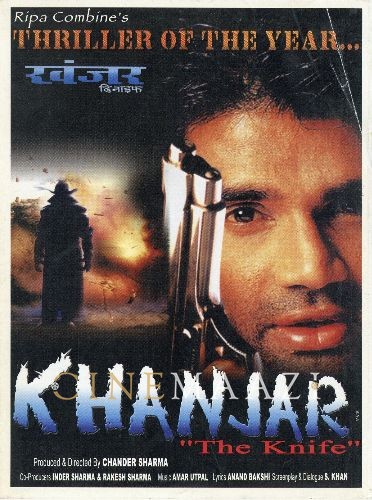
Khanjar/The Knife 2003
-
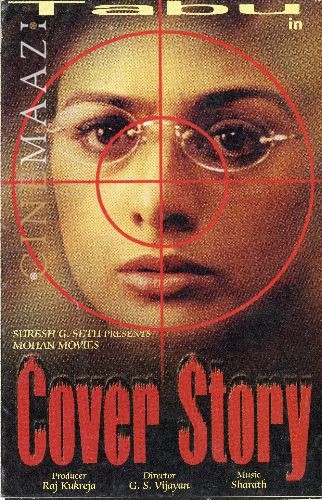
Cover Story 2002
-

Maa Tujhhe Salaam 2002
-
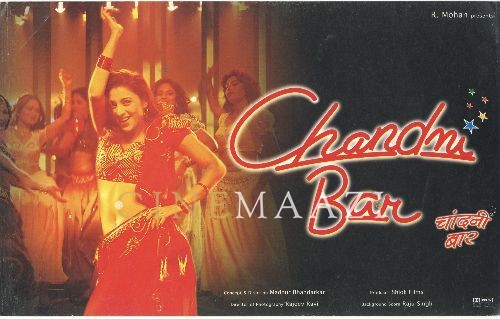
Chandni Bar 2001
-
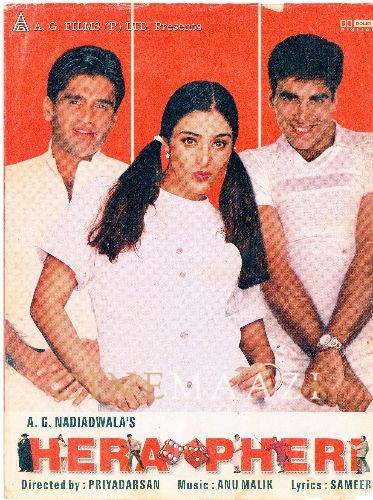
Hera Pheri 2000
-

Thakshak 1999
-
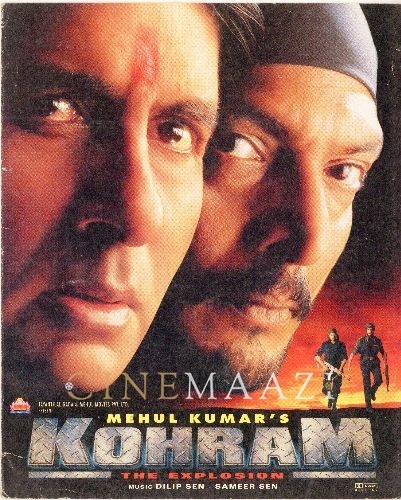
Kohram 1999
-
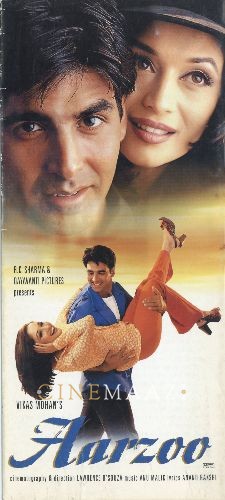
Aarzoo 1999
-
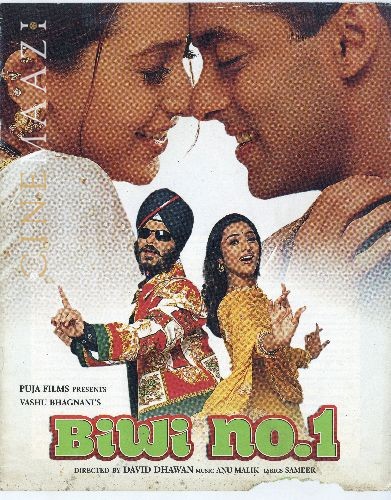
Biwi No. 1 1999
-






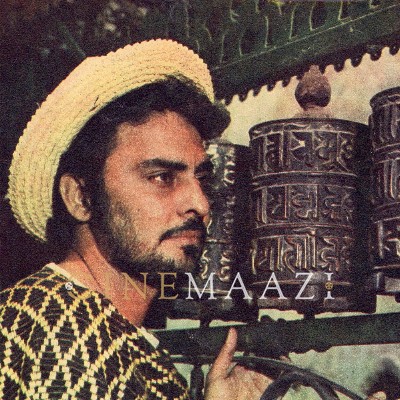
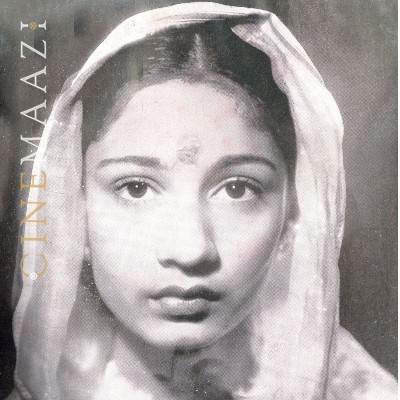


.jpg)



